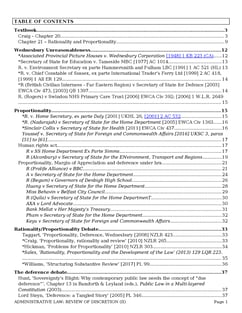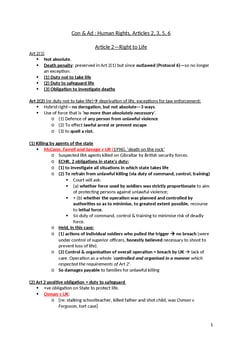R v Secretary of State for Transport ex parte Richmond [1994] 1 WLR 74
Judgement for the case R v Secretary of State for Transport ex parte Richmond
Table Of Contents
As was his power under statute, a minister (M) announced new regulations for overnight flying, restricting certain types of planes from flying at certain points in the night.
However his announcement failed to comply with the statute that required he specify certain other factors.
Laws J
A public authority may, by an express undertaking or past practice or a combination of the two, have represented to those concerned that it will give them a right to be heard before it makes any change in its policy upon a particular issue which affects them.
If so, it will have created a legitimate expectation that it will consult before making changes, and the court will enforce this expectation save where other factors, such as considerations of national security, prevail.
This is procedural protection of legitimate expectation.
-
A second type of LE exists where “the court concludes that there exists what amounts to an assurance that the policy will continue, it may deem it unfair for the authority to make a change in the policy unless it announces its intention in advance so as to allow an affected person to make representations before any change is carried out.”
This is substantive protection of LE (Though he doesn’t like the label of “substantive” since it is still a matter of allowing time for a procedure before changing a policy).
He rejected an argument that there is actual substantive protection of LE.
He rejected the submission that a policy change, in addition to satisfying the procedural requirement, had to be “in the public interest” (i.e. an actual substantive protection) because the courts should not decide “public interest”, while to suggest that a change in policy has to be “Wednesbury reasonable” is no more than what already exists to limit the exercise of discretion.
RELATED CASES
For Further Study on R v Secretary of State for Transport ex parte Richmond

Administrative Law notes fully updated for recent exams at Oxford an...
Need instant answers? Our AI exam tutor is here to help.
Ask questions 🙋 Get answers 📔 It's simple 👁️👄👁️
Our AI is educated by the highest scoring students across all subjects and schools. Join hundreds of your peers today.
Get StartedSimilar Cases
Related Product Samples
These product samples contain the same concepts we cover in this case.

